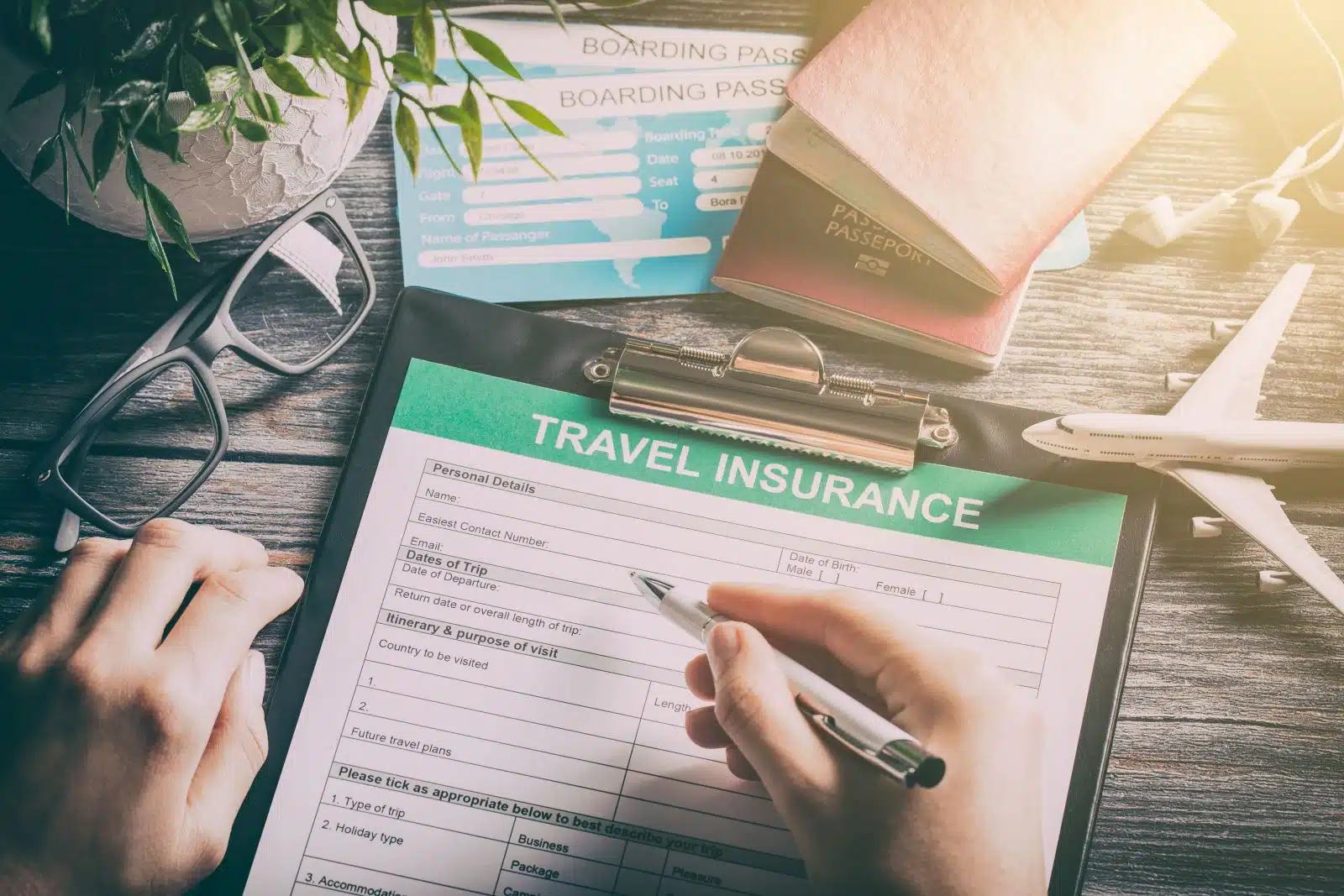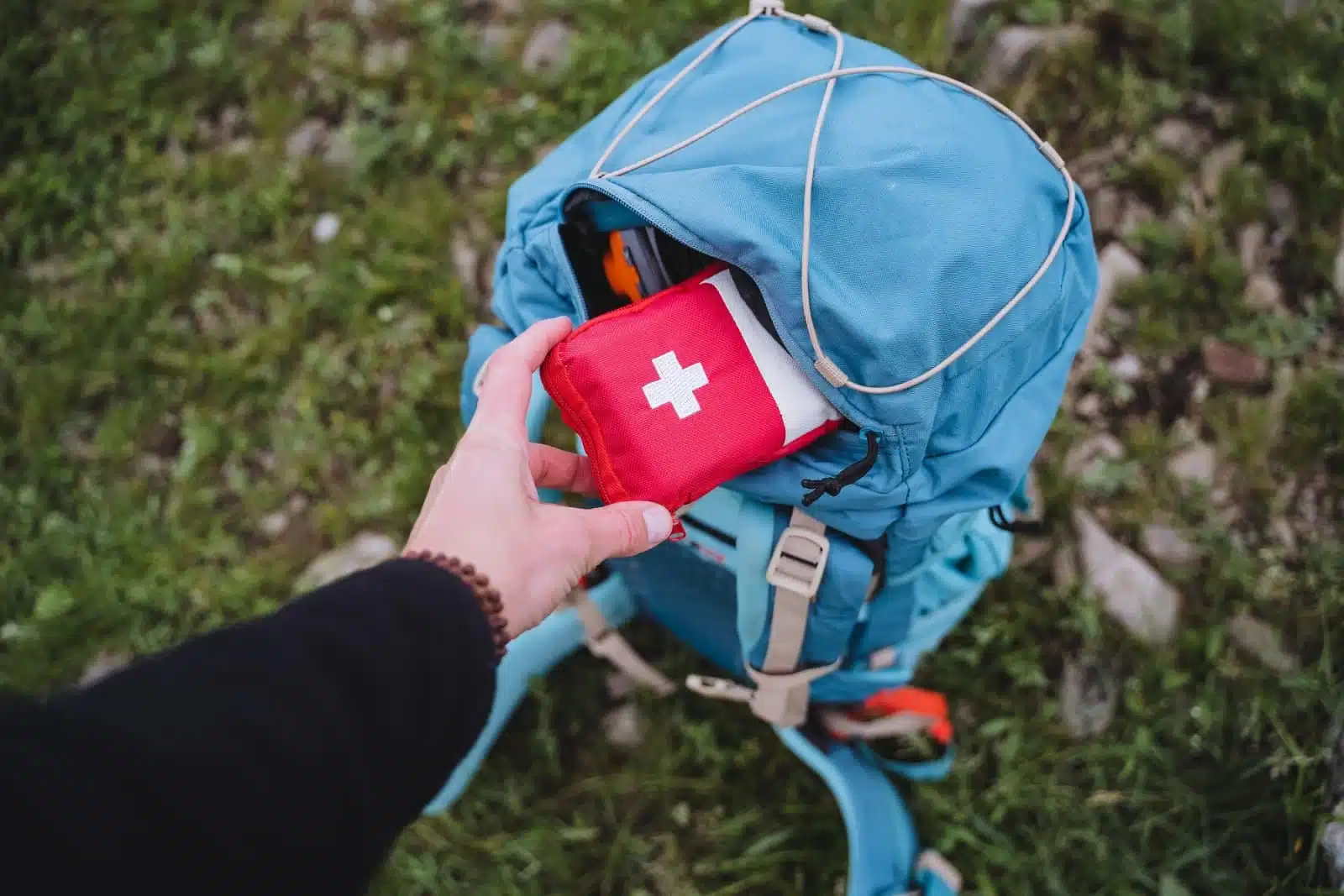As American seniors look forward to exploring new destinations, they face unique challenges in managing their health while on the road. How can they ensure a smooth and safe journey both domestically and abroad?
1. Master Medicare’s Map

Image Credit: Shutterstock / ilikestudio
Understanding the nuances of Medicare is crucial. While traveling within the U.S., most services are covered. However, venturing internationally? Medicare coverage often vanishes, making supplemental travel insurance a must-have to cover unexpected medical expenses.
2. Invest in Robust Travel Insurance

Image Credit: Shutterstock / REDPIXEL.PL
Comprehensive travel insurance that includes medical coverage can be a lifeline in case of health emergencies abroad. These policies typically cover everything from hospital stays to emergency medical evacuations, potentially saving thousands of dollars.
3. Scout Out Local Healthcare

Image Credit: Shutterstock / Pressmaster
Before setting foot in a new city or country, research the local healthcare landscape. Identify the nearest hospitals and clinics, especially those recommended for international travelers, which can offer services aligning with American healthcare standards.
4. Demand Accessibility

Image Credit: Shutterstock / H_Ko
Ensure all accommodations and transport options are accessible. This isn’t just about comfort—it’s about necessity. From wheelchair-accessible hotel rooms to tourist sites with easy access, planning can prevent headaches.
5. Stockpile Your Medications

Image Credit: Shutterstock / New Africa
Travel with enough medication to last your trip, plus extra in case of delays. Keeping medications in their original labeled containers may help smooth your way through customs checks.
6. Keep Your Docs Handy

Image Credit: Shutterstock / smolaw
Travel with a copy of important medical records and emergency contact information. Digital copies can be stored in a secure app or email, accessible from anywhere in the world.
7. Vaccinations Are Vital

Image Credit: Shutterstock / PhotobyTawat
Stay up-to-date on vaccinations, including those specifically recommended for your travel destinations, like Yellow Fever or Typhoid, depending on where you’re headed.
8. Opt for Direct Routes

Image Credit: Shutterstock / Ekaterina Pokrovsky
Choosing direct flights can reduce travel time and decrease the risk of missed connections or delays, which can be more than just inconveniences for those with health concerns.
9. Manage Meds Across Time Zones

Image Credit: Shutterstock / stockfour
Adjust your medication schedule based on time zone changes to maintain their effectiveness. A little planning goes a long way in keeping your routine intact.
10. Prioritize Hydration and Rest

Image Credit: Shutterstock / Anja Ivanovic
It’s easy to get caught up in the excitement of travel. Remember to drink plenty of water and get adequate rest to keep your immune system strong and responsive.
11. Seek Out Senior Discounts

Many travel-related businesses offer senior discounts. Saving money on flights, hotels, and entry fees can make a big difference in your travel budget.
12. Pre-Trip Doctor’s Visit

Image Credit: Shutterstock / Prostock-studio
A pre-trip consultation with a travel doctor can provide you with destination-specific health advice and any additional vaccines or medications needed.
13. Pack a Personal Health Kit

Image Credit: Shutterstock / Aleksey Matrenin
A health kit tailored to your needs should include basic first aid supplies, over-the-counter medicines, and extra copies of prescriptions.
14. Notify Your Bank

Image Credit: Shutterstock / Jelena Zelen
To avoid any financial hiccups, inform your bank about your travel plans. This prevents your cards from being frozen due to unusual out-of-country activity.
15. Choose Suitable Stays

Image Credit: Shutterstock / Boyloso
Select accommodations known for comfort and good service. Places that cater specifically to seniors or those with health needs can offer peace of mind.
16. Stay Active, But Don’t Overdo It

Image Credit: Shutterstock / Geber86
Keeping active is important, but recognize your limits. Balance sightseeing with rest, and don’t try to cram too much into each day.
17. Be Mindful of Local Cuisine

Image Credit: Shutterstock / RossHelen
While trying local foods is part of the travel experience, be cautious with street food and tap water, especially in regions where sanitation is questionable.
18. Know Essential Local Phrases

Image Credit: Shutterstock / Atstock Productions
In non-English speaking countries, knowing how to ask for help in the local language or explain a medical condition can be crucial during emergencies.
19. Register with STEP

Image Credit: Shutterstock / Monster Ztudio
The Smart Traveler Enrollment Program (STEP) is a free service that helps the U.S. Embassy contact you in an emergency, whether natural disaster, civil unrest, or family emergency.
20. Keep Emergency Info Accessible

Image Credit: Shutterstock / Stokkete
Have a robust list of emergency contacts readily available, including family members, your doctors, and the local U.S. consulate or embassy.
21. Plan Flexibly

Image Credit: Shutterstock / kitzcorner
Allow for flexibility in your travel plans to accommodate any unexpected health issues. Avoid tightly scheduled itineraries that leave no room for adjustment.
Safe Travels, Smart Choices

Image Credit: Shutterstock / AlessandroBiascioli
As you prepare for your next adventure, remember that being informed and prepared can dramatically reduce stress and enhance your travel experience. Whether you’re taking a short trip to another state or an extended voyage overseas, these tips will help you navigate the complexities of travel and health with confidence and ease.
More From The Green Voyage
Top 10 Trending Travel Destinations 2024
6 Essential Banking Apps for International Travel – Managing Your Finances on the Go
Traveling With Kids – 10 Tips to Create Memorable Family Holidays
The post Travel and Healthcare Tips for American Seniors first appeared on The Green Voyage.
Featured Image Credit: Shutterstock / kudla.
For transparency, this content was partly developed with AI assistance and carefully curated by an experienced editor to be informative and ensure accuracy.
Tips for Trip Success
Book Your Flight
Find an inexpensive flight by using Kayak, a favorite of ours because it regularly returns less expensive flight options from a variety of airlines.
Book Your Hotel or Special Accommodation
We are big fans of Booking.com. We like their review system and photos. If we want to see more reviews and additional booking options, we go to Expedia.
You Need Travel Insurance!
Good travel insurance means having total peace of mind. Travel insurance protects you when your medical insurance often will not and better than what you get from your credit card. It will provide comprehensive coverage should you need medical treatment or return to the United States, compensation for trip interruption, baggage loss, and other situations.Find the Perfect Insurance Plan for Your Trip
